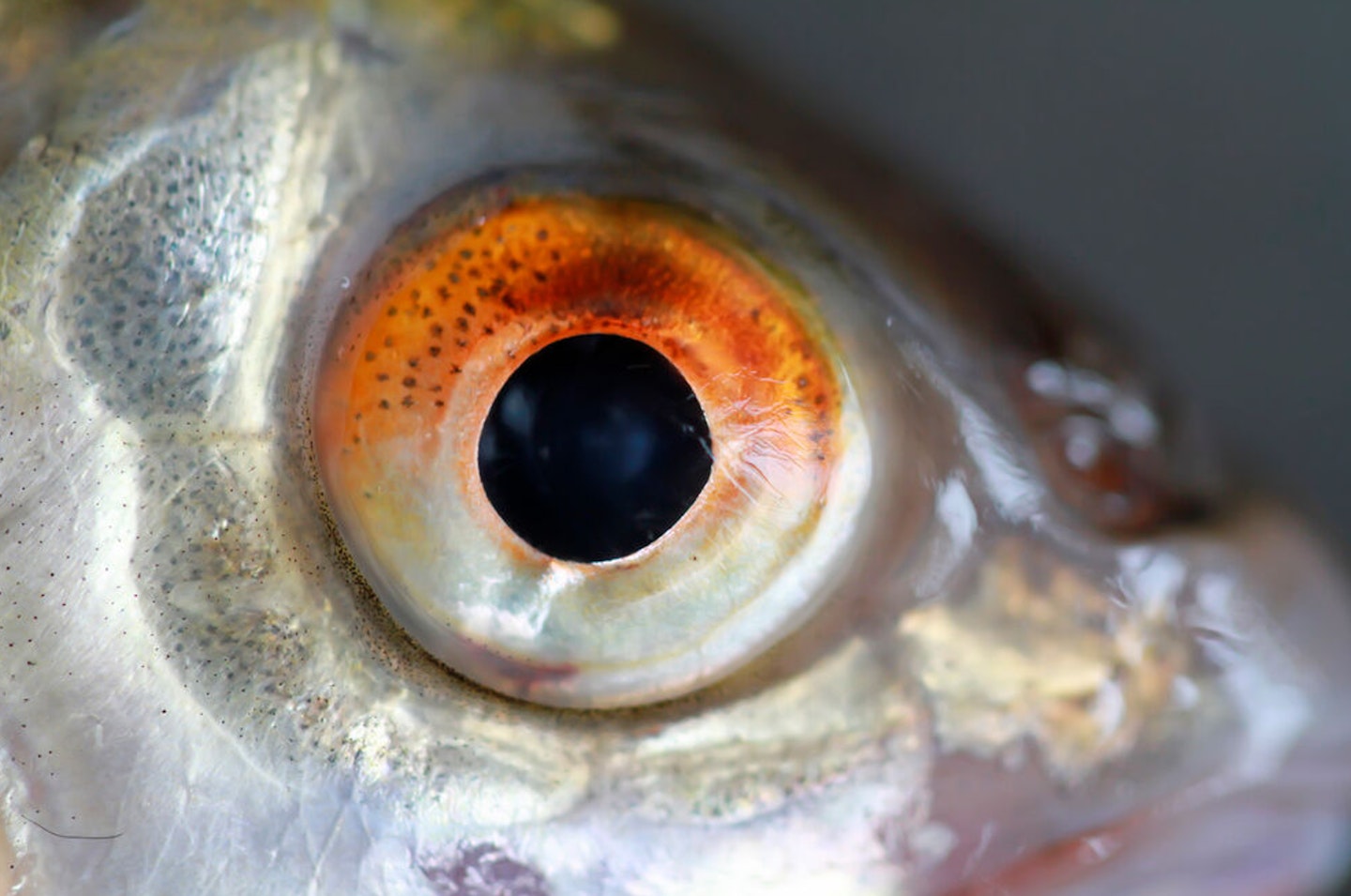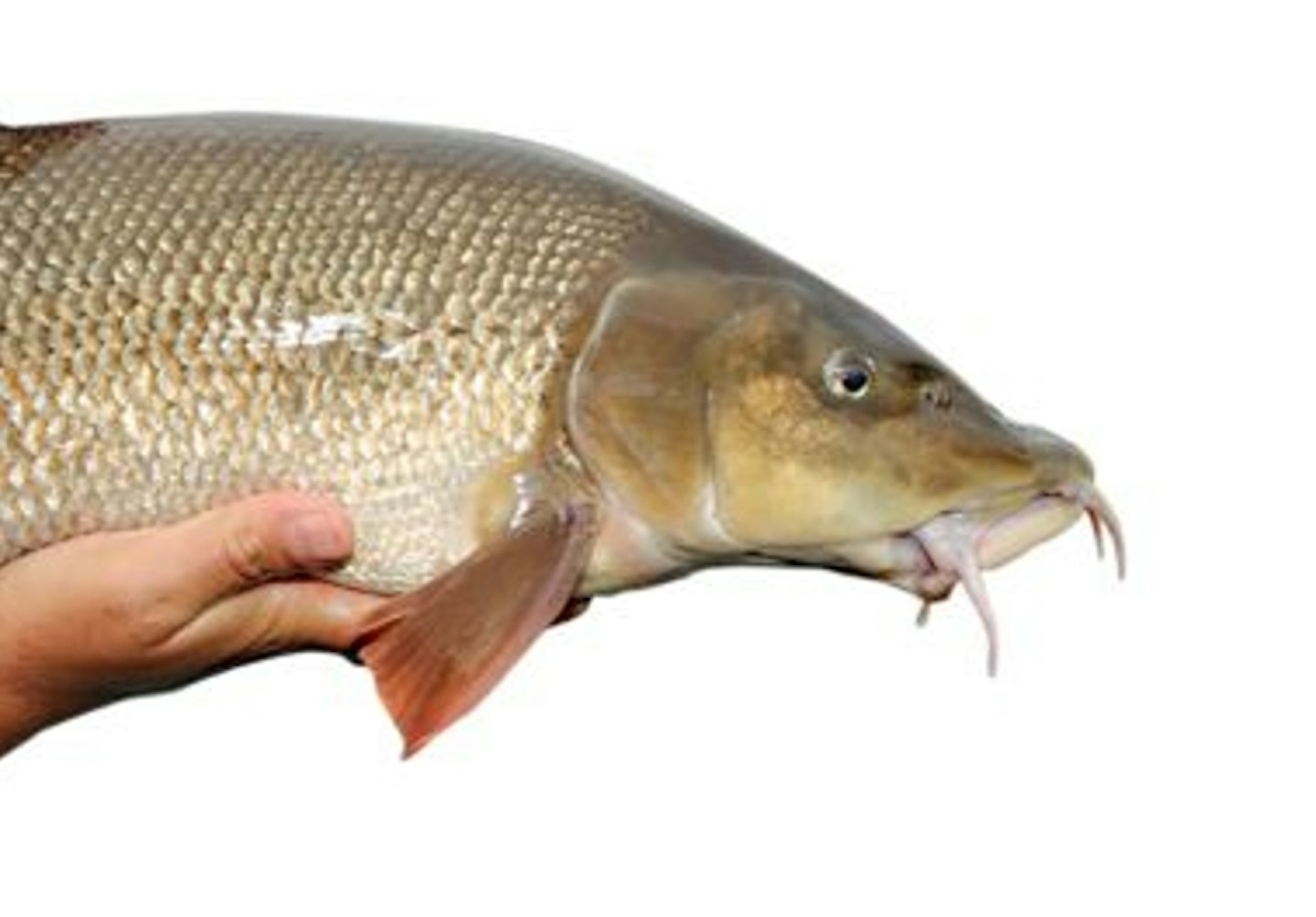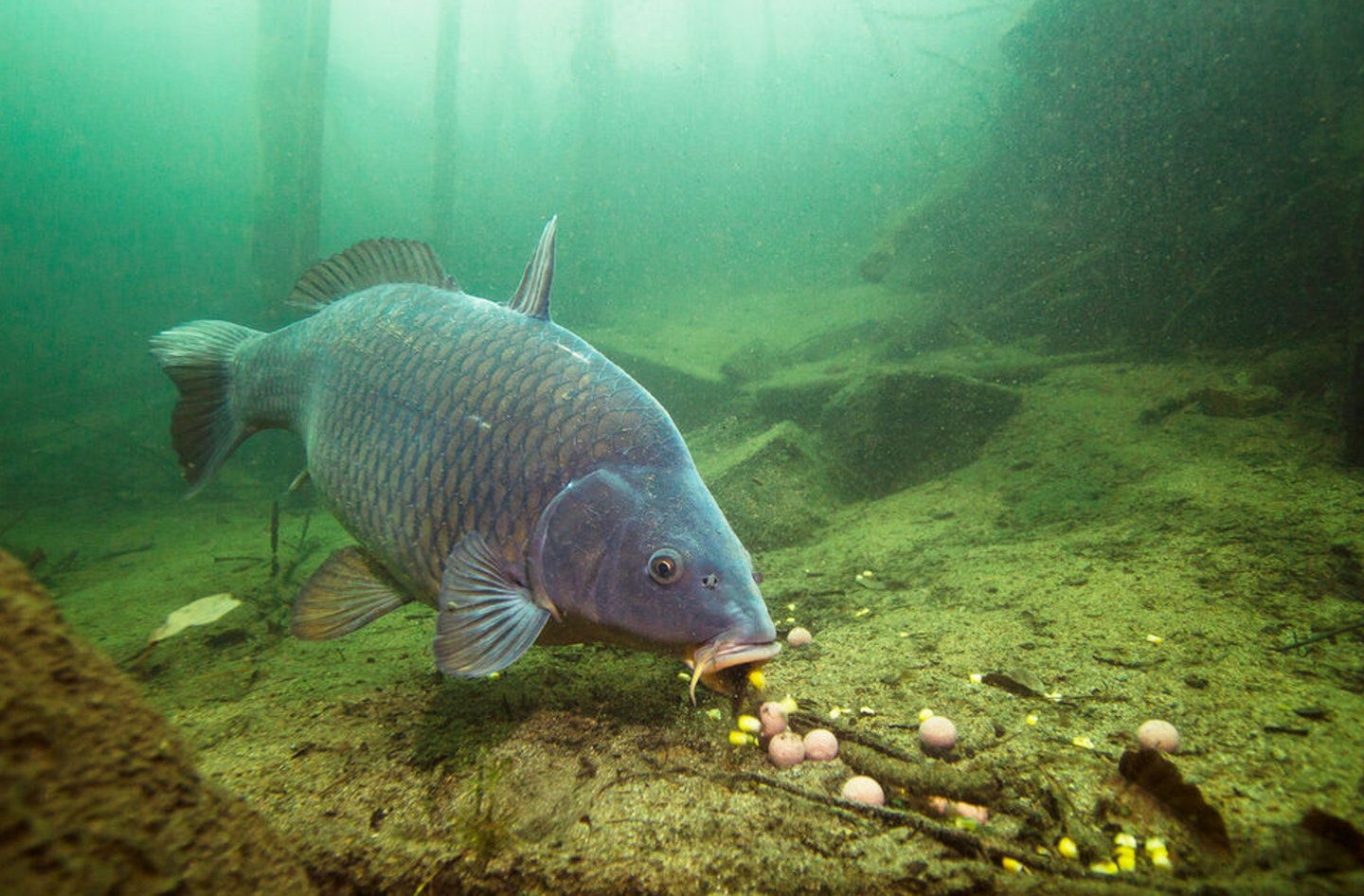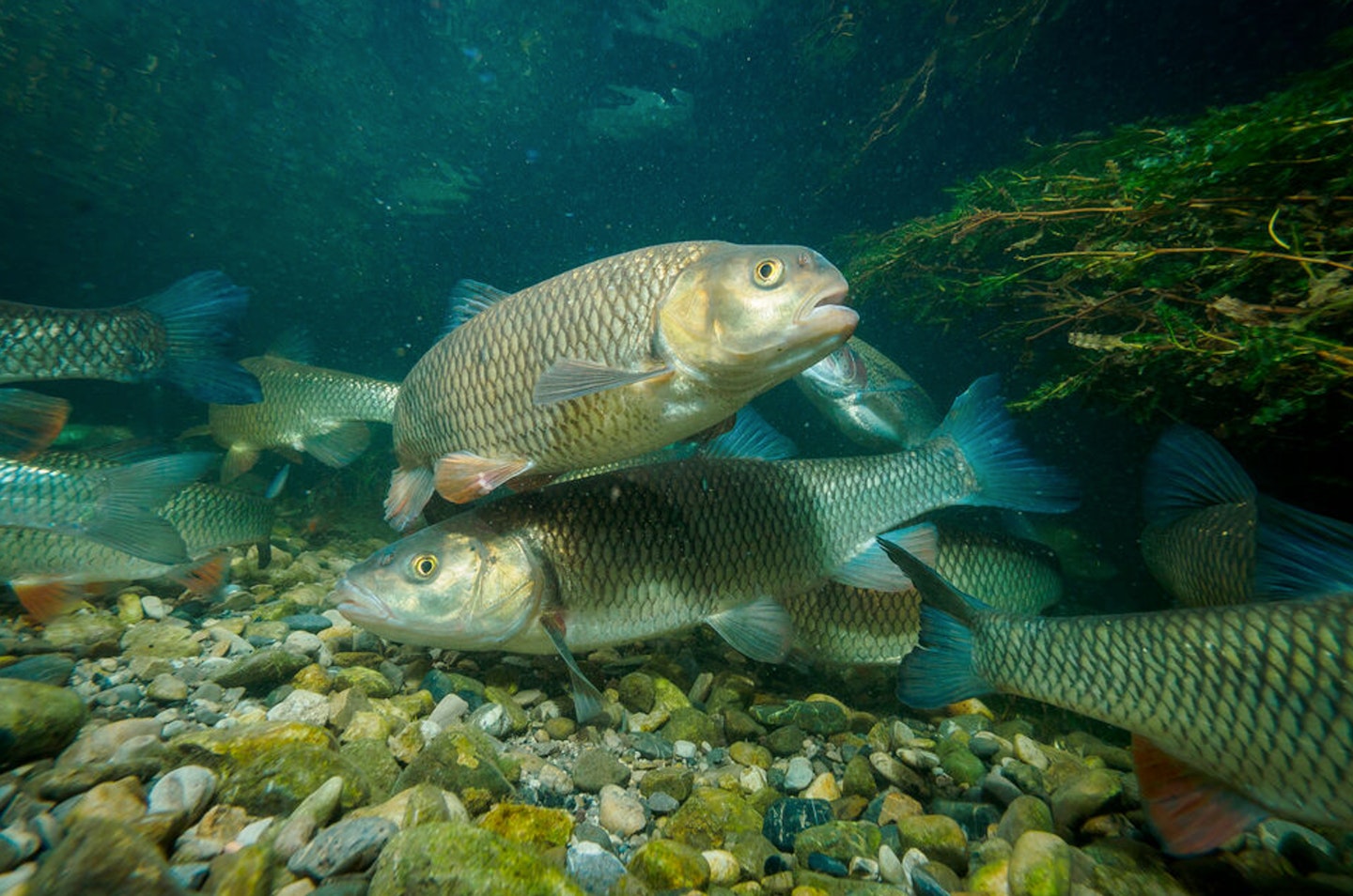Far from being the sleepy, slow-witted creatures some imagine, fish exhibit sensory powers that can be truly staggering. These vary an incredible amount between species, depending on their habitat and way of life.
Part of the battle in understanding fish is the hugely different world they dwell in, compared to our own. Sound, smell and light itself travel very differently through water than air.
Nevertheless, with a little help from science we’re getting a fascinating, far deeper understanding of fish than our ancestors could ever have imagined. So, which fish have the most acute senses of all?
MORE INTERESTED IN PREDATORY FISH? HERE IS WHY THEY ARE SO IMPORTANT FOR FISHERIES.

Life through the lens
Look at the huge differences in the size and positioning of the eyes on fish and it’s clear that not all are created equal. Compare the tiny, almost useless eyes of a catfish to the huge eyes of a pollack, to take just two obvious examples.
Roach and bream, just like grazing animals such as deer and sheep, have eyes on the sides of their heads, giving them a broad field of vision to keep tabs on shoal mates and potential threats. Pike, on the other hand, have forward-facing eyes that provide excellent binocular vision, allowing them to spot prey and judge distances for that split-second attack. As for night vision, the large eyes of the zander betray a huge number of light receptors, ideal for dark conditions or murky water.
Did you know?
While sight is vital for some fish, others, such as bullheads in subterranean urban rivers, have been known to survive in almost complete darkness.
DON'T BE LEFT IN THE DARK WHEN FISHING. GRAB ONE OF THE BEST HEADTORCHES HERE.

Touch & feel
The most contentious of the fish senses, debate still occurs about how much fish can “feel”. It seems unlikely that creatures built to feed on small, often spiky food items from snails to crayfish and sticklebacks would have mouths as sensitive as ours. Nevertheless, fish can certainly feel through their bodies and fins, while some specialists even have barbules, feelers or other special organs to help them detect prey.
Barbel, gudgeon and catfish are examples of this. Such barbules or “whiskers” tend to be for taste primarily, but also play a role in rooting around the bottom to feel the presence of smaller creatures.
The touch sense in fish also overlaps with hearing. Fish can certainly “feel” vibrations through their lateral line and tiny pores in their bodies, just as we can feel temperature changes or a gust of wind. In the case of fish, such signals can also be vital in evading attackers or detecting a fleeing prey item.
Did you know?
Lateral lines are mucus-filled tubes running the length of the body that are full of sensory receptors. They also help fish to determine water currents and aid navigation in murky water.
FISH CAN CERTAINLY FEEL LINES WHEN THEY BRUSH AGAINST THEM. GET THE BEST REEL LINES TO HELP YOU STAY HIDDEN HERE.

Taste & smell
As with humans, the senses of taste and smell are intimately connected in fish. In water, they are inseparable!
While the taste receptors tend to be located near the head on fish, in areas such as nasal organs or whiskery growths, quite a few species also have external taste sensors across their bodies. Catfish are an extreme example, effectively being able to taste through their bellies and tails!
For fish, scent is vital not only in feeding, but for breeding, shoaling and avoiding danger. Predators can smell their prey, while the opposite is also true – stressed roach or minnows are able to produce “alarm” type pheromones to warn shoal mates.
Did you know?
Some fish possess such acute taste, they could detect a single drop of flavouring in an Olympic-sized swimming pool! Carp are especially sensitive, which perhaps explains why less is often more with bait flavourings.
GET THE BEST BAITS FOR CARP FISHING BY TAKING A LOOK AT THIS BUYER'S GUIDE.

Hearing
Fish “hear” primarily via “ear stones” or otoliths. Unlike our own ears, these organs are internal. They use sound to receive various messages about their world, whether it’s danger approaching or changes in current. The swimbladder is connected to the inner ear in many fish, notably cyprinids such as carp and chub. This allows them to detect vibrations such as heavy footfalls from many metres away. As for how sounds are used for communication between fish, we still have much to learn. Cod and gurnards are believed to communicate via grunting or croaking sounds!
Did you know?
Because of its density, sound vibrations travel about five times more efficiently through water than air. Noisy anglers take note before hammering in pegs or turning on the radio!
LEARN HOW TO CATCH CARP ON PRESSURED NOISY VENUES IN THIS EXPERT ARTICLE.

Sixth sense?
Beyond everything we currently know about fish, there are still many mysteries beyond our grasp. Do some fish have a “sixth sense” or a combination of senses that give them extraordinary abilities? Fish certainly have an electromagnetic sense, for example, that plays a role in navigation and hunting.
Of all our fish species, big chub are among the most notorious for having a “sixth sense” to evade capture. Sometimes it’s as if they’re not only aware we’re present, but know our next move and what we had for breakfast!
LEARN MORE ABOUT FISH AND THEIR BEHAVIOURS IN THIS ARTICLE.

This page is a free example of the amazing content Angling Times Members get every single week. Becoming an Angling Times Member gives you access to award-winning magazine content, member rewards, our back issue archives, bonus content and more! Join our fishing community and find out more today!
